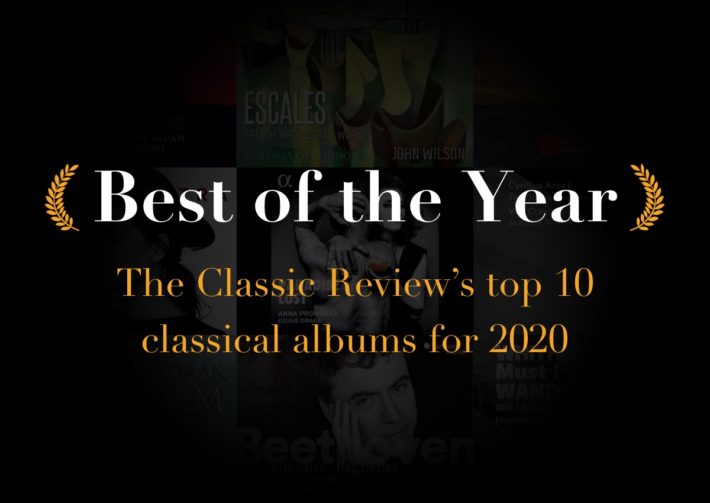We go over a lot of classical music albums every week, so when 2020 comes to an end it’s time for members of The Classic Review staff to pick their favorite albums of the year. And so, a moment before we start providing you with fresh new content for 2021, here are the albums that our staff members most liked in 2020.
View and purchase all of our picks in our dedicated Amazon Store
“Escales” – Sinfonia of London, John Wilson
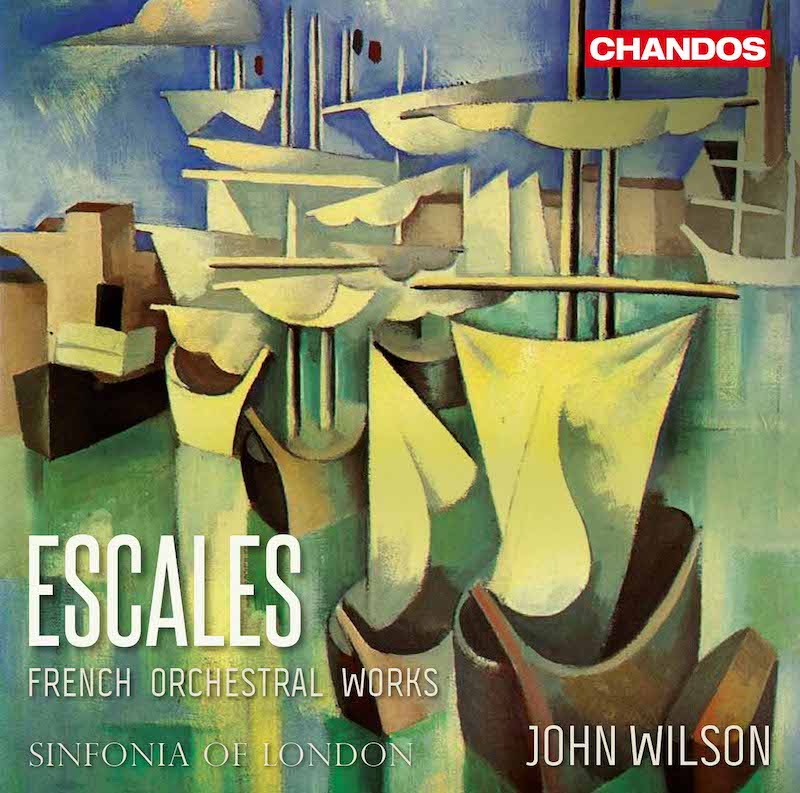
“Escales”, an album of French orchestral music from John Wilson, was my orchestral choice for the year. Bookending the album with Iberian-influenced pieces seen through the eyes of French composers, Chabrier’s España sparkles with iridescent color, which is maintained right through to Ravel’s “Rhapsody Espagnole”. Taking in Debussy’s “Prelude ’Apres-midi de Faune” and Massenet’s famous “Meditation”, these polished performances delighted in being expressive without being cloying and overtly sentimental. Duruflé’s “Trois Danses” came as a new discovery as did Ibert’s “Escales”. The playing from the Sinfonia of London, amazingly a group that comes together only for special sessions and was officially reformed in 2018, is flawless – with a clean and precise sound that bellies warmth. The production team at Chandos is commendable for producing such a wonderful recording. — Leighton Jones
Rouse – Symphony No. 5, Concerto for Orchestra, Supplica – Nashville Symphony, Guerrero
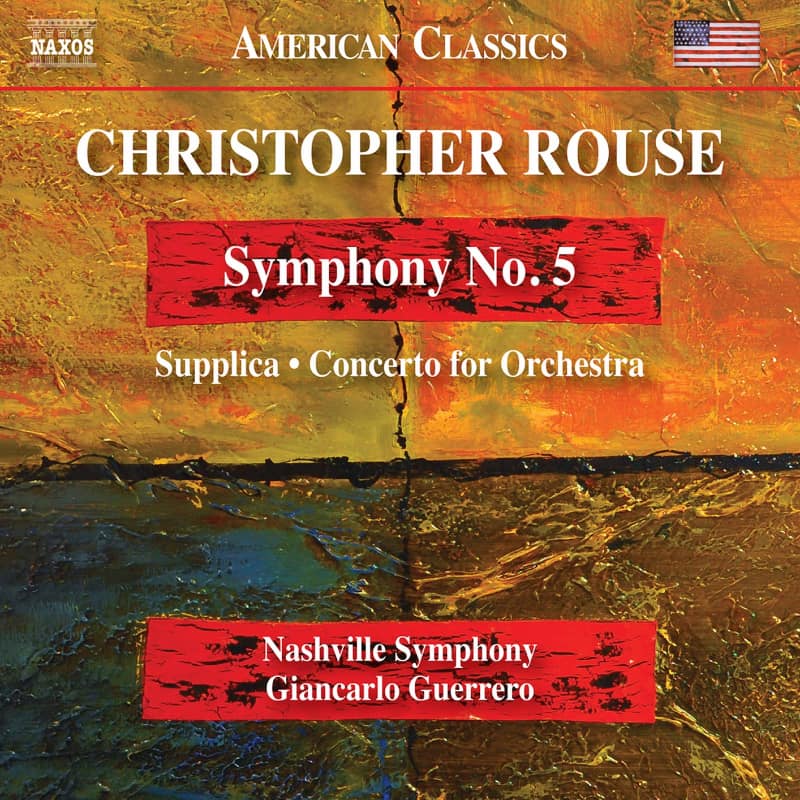
Christopher Rouse’s death in 2019 was a terrible loss to the contemporary music scene, and this fabulous release is a suitable display of the composer’s full command in orchestral writing. These works come with their own cultural weight, and while Rouse is highly creative with his musical ideas and orchestration, he doesn’t fully reject tradition – the Symphony uses motifs found in Beethoven’s own Fifth Symphony, while the Concerto for Orchestra is a tour-de-force that echos that of Bartók. The Nashville Symphony under Giancarlo Guerrero sounds marvelous, helped by a full yet transparent recording engineering to match. These works continue to reveal themselves, even at repeated listening. — Tal Agam
Bach – St. John Passion – Bach Collegium Japan – Masaaki Suzuki
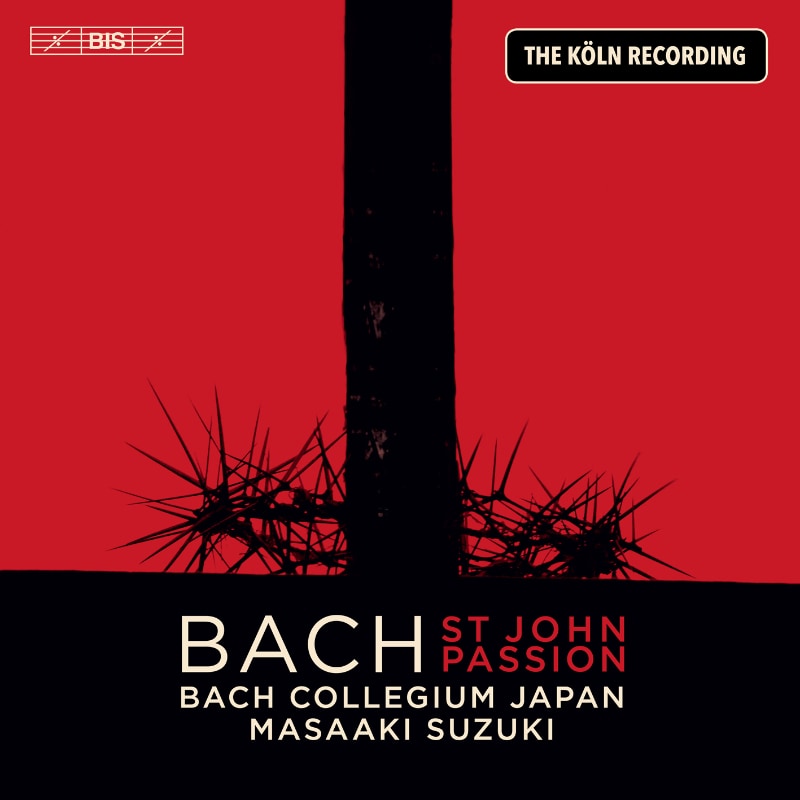
Over the past twenty-some years, Bach Collegium Japan’s recordings of their namesake’s choral works have featured consistent technical excellence and profound understanding of the music’s spiritual and theological intent. Yet none of those earlier albums prepared me for the visceral impact of this new reading.
Recorded in March 2020 at the beginnings of the pandemic crisis, the performance has a raw, emotional intensity that grabs the listener and never lets go. Just listen to the opening chorus, its insistent, driving bass line and dissonant voice crossings thrusting us right into the middle of the action. James Gilchrist’s evangelist is a vivid storyteller, and each soloist shows impressive textual sensitivity. Orchestra and choir perform with sharp characterization and technical virtuosity. But ultimately it is Suzuki’s masterly pacing and keen dramatic sense that make this such a profoundly moving performance. — David McConnell
Dvořák – Requiem, Te Deum, Biblical Songs – Hrůša, Bělohlávek
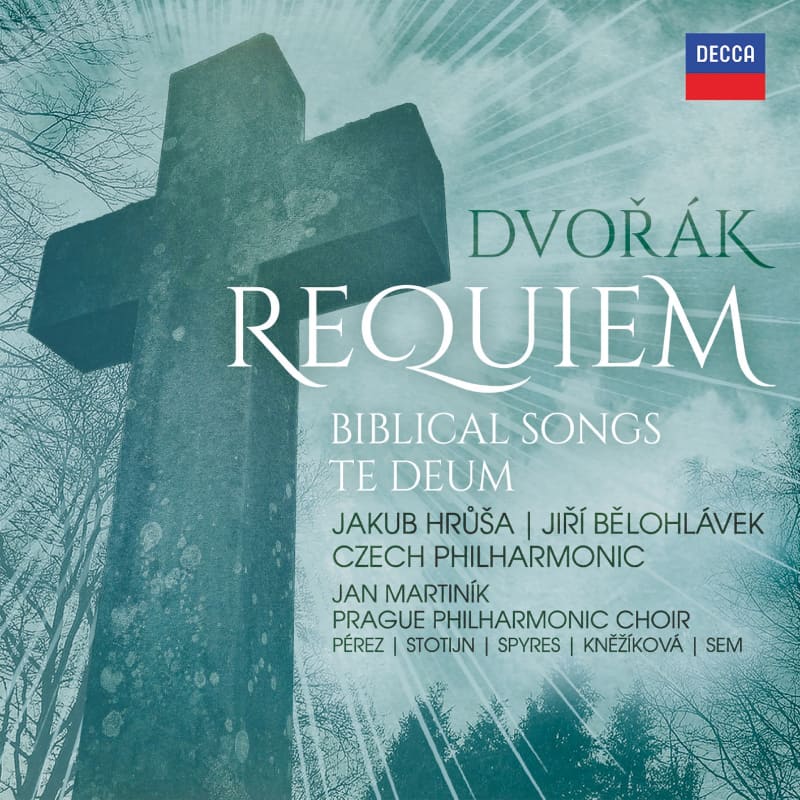
This album features three lesser-known Dvořák works in stunning performances. The opening moments of the Requiem signal something special, orchestra and choir urgently communicative and impassioned. Hrůša is a sensitive accompanist, offering ample freedom for his soloists to shape phrases with care and affection.
The Biblical Songs, conducted by Bělohlávek, were recorded just a few months before death, and there is a frisson to this recording that suggests everyone was aware this was the last time they would perform together. Bělohlávek finds the essential humanness of each psalm, fully capturing the sadness, pleading, joy, and confidence of each text. Hrůša returns for a thrillingly vigorous rendition of the Te Deum, inspiring an infectious enthusiasm and joyfulness from his forces.
Hrůša, once a student of Bělohlávek, obviously learned a great deal from his mentor. He elicits luminous colors and vivid characterization from all his musicians. Balance between choir, soloists and orchestra is well-nigh perfect, the sound resonant and warm. There is now simply no finer recording of the Requiem or Te Deum. — David McConnell
Cyrillus Kreek – The Suspended Harp of Babel – Vox Clamantis, Tulve
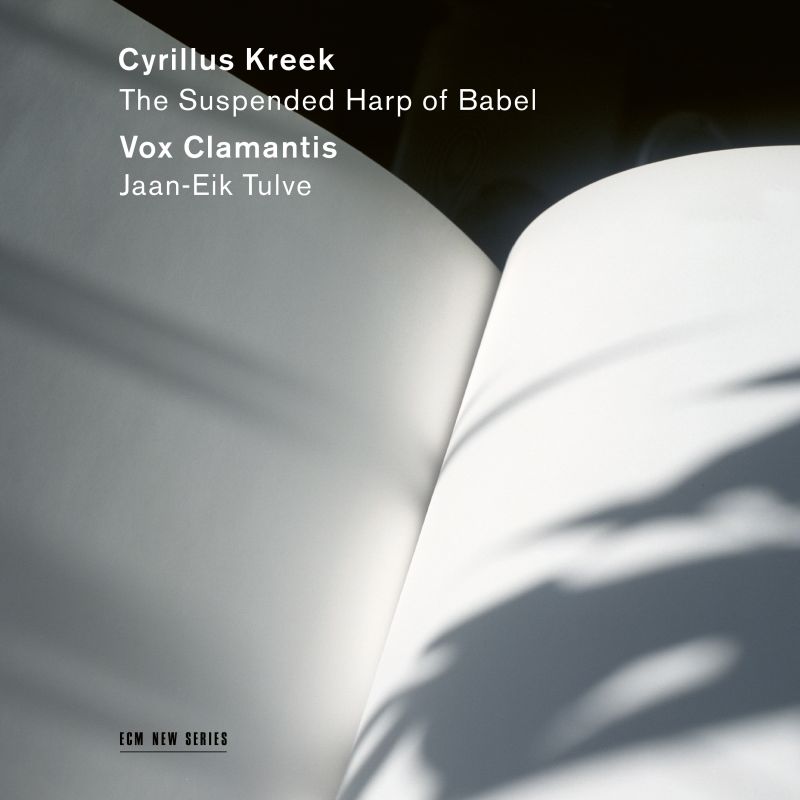
I’ve always loved Cyrillus Kreek’s choral music, so I’m grateful to this album for revealing new interpretations of it that I never dared to imagine. The tracks alternate between polished, chamber-choir renditions of Kreek’s choral music, and modern arrangements of some of the folk music that served as his source material. It’s the contrast between the two that makes the album so successful. The folk music is sparse – only a plucked zither (kannel), a keyed fiddle (nyckelharpa), and the occasional drum or tambourine accompany vocal soloists. It sounds almost dreamy at times, and at others it might inspire some dancing. In contrast, Vox Clamantis sings Kreek’s choral writing with a dense, rich sound and a lovingly unanimous, well-practiced interpretation. Their intonation and diction are magnificent, and the recording quality is unmatched. Jaan-Eik Tulve leads with a steady hand, guiding the music into gentle climaxes and haunting cadences. The clarity of artistic intention is awesome to behold. — Jonah Pearl
“Clytemnestra” – Ruby Hughes, BBC National Orchestra of Wales, Steen
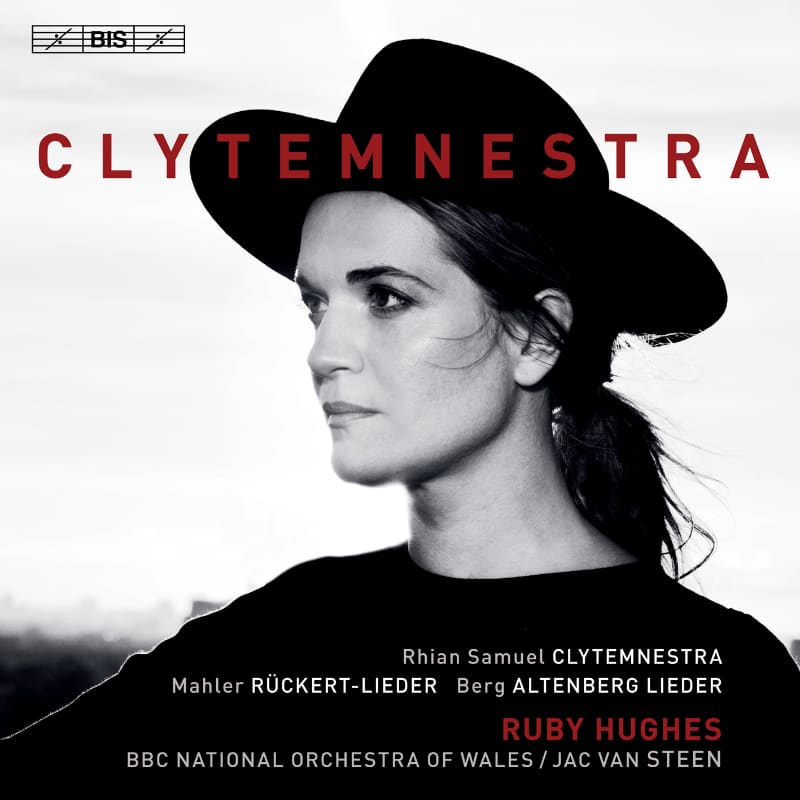
There are few singers who can, in the same album, convey the imagination and beauty of Mahler’s Rückert-Lieder as effectively as the terror of Rhian Samuel’s “Clytemnestra” (1994), but Ruby Hughes certainly does. It is this contemporary work – the intensity of the protagonist’s anguish and her ensuing catharsis so convincingly presented by the singer – that gripped me mentally long after listening. This is one of those few recordings I have revisited many times; A longevity that makes it an Album of the Year for me. The subject matter does not lend itself to a lighthearted experience (and it doesn’t necessarily get any easier with repeated listens), but that’s exactly the point: the music and the performance invites a deep involvement on the part of the listener each time and consequently gives way to different nuances and reflections. — Azusa Ueno
“Paradise Lost” – Anna Prohaska, Julius Drake
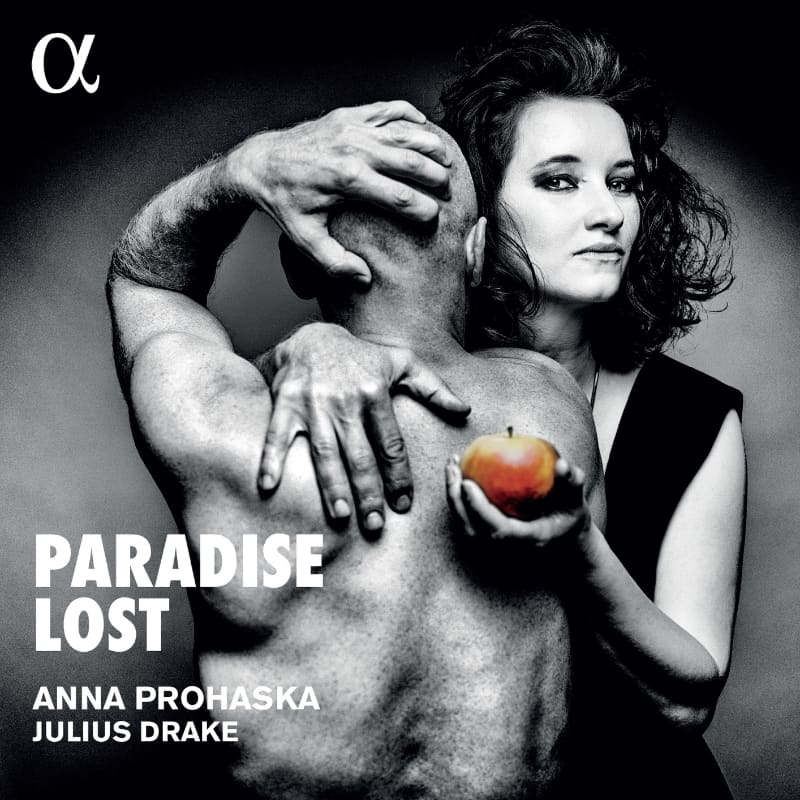
Anna Prohaska creates entire worlds when she sings. This album, which tracks the story of Eve in a loose, allegorical way, is particularly well suited to show off that skill. Prohaska begins with songs of Paradise and intense love (think Ravel and Wolf), ends up at a troubled, mundane, and earthly existence (think Mahler and Eisler), and at every step along the way the portrait of Eve is no less than cinematic. She imbues her texts with honest emotion, subtly manipulating consonants, rhythm, vibrato, and pitch all at once. The program is a masterwork, and full of clever moments – for example, in the climactic scene, our expectations are subverted, and instead of fear or dread as Eve bites down, we hear a nursery rhyme about a young girl losing a tooth in an apple. Pianist Julius Drake provides impeccable accompaniment that makes it sound like the pair has worked together for years. This album made me cry, laugh, dream, yearn, and think hard about what life demands from us. It’s far and away the best vocal music I’ve heard in a long time. — Jonah Pearl
“Whither Must I Wander” – Will Liverman, Jonathan King
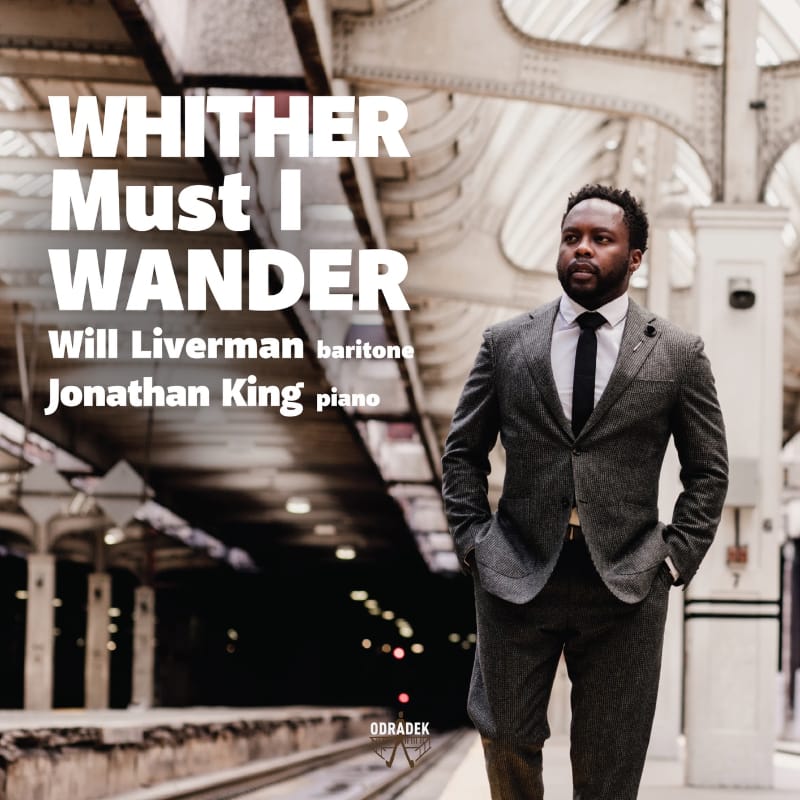
From the first note there was something quite special about this album, and it easily entered my list of favorites of the year. Will Liverman’s voice perfectly suites this repertoire of English songs. The tone, color, and the stylish diction made Vaughan-Williams’ song cycle “Songs of Travel” an exquisitely polished and engaging performance. The storytelling in each song and the chemistry with pianist Jonathan King is something quite exceptional. From “The Vagabond”, through the album’s title song “Whither Must I Wander” to the closing song of the cycle, the journey is nothing but captivating. But for me, the two songs I came back to are Copland’s “At The River” and “Ten Thousand Miles Away”, arranged by Steven Mark Kohn, for the sheer sincerity and honesty Liverman brings to his performance. Beautifully programmed, produced and balanced, this will continue to bring many hours of pleasure. — Leighton Jones
Beethoven – Complete Bagatelles – Paul Lewis
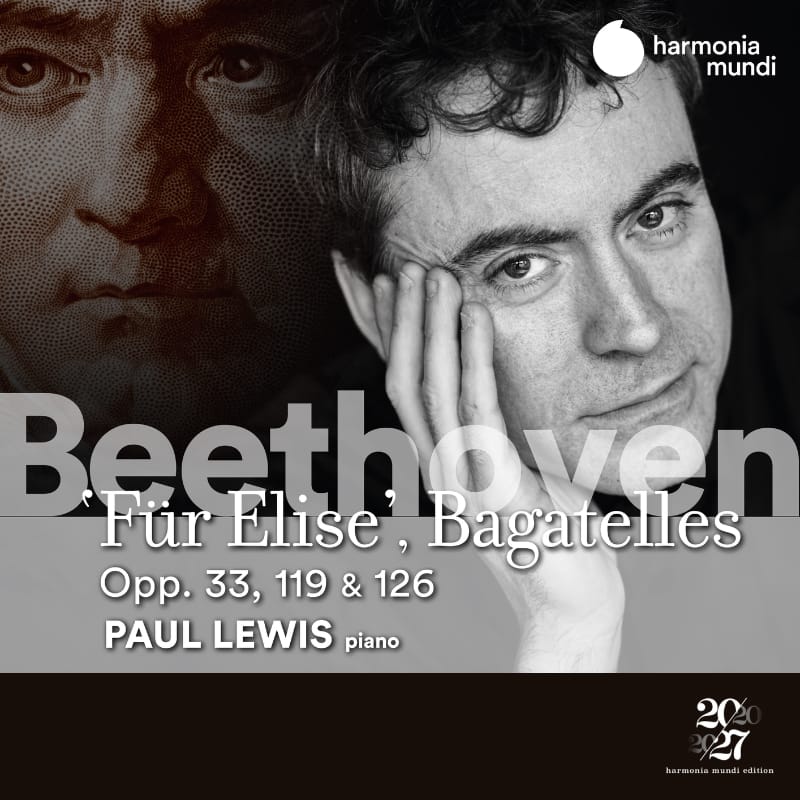
From the many (too many?) Beethoven releases in 2020 marking the composer’s 250 birth year, this album has stayed the longest in my sound system, and would likely remain as a benchmark Beethoven performance. After recording the complete Piano Concertos, Sonatas and Diabelli Variations, turning to the short form of the Bagatelle is no easy task, yet Lewis provides what is, to me, his best Beethoven recording. How marvelous to realize, then, that the pianist doesn’t seem to assert himself in the performance too forcefully, letting the music speak for itself. This is an art that conceals art, with heartwarming, dedicated and memorable results. — Tal Agam
Debussy, Rameau – Vikingur Ólafsson
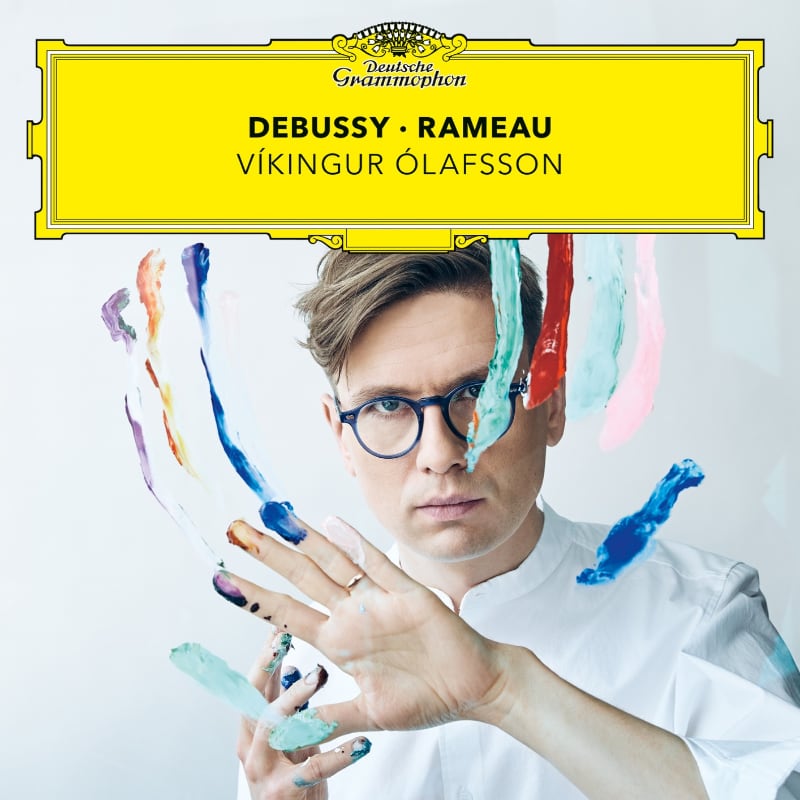
Debussy holds a special place in my heart. I’ve often turned to the masters – Gieseking, Thibaudet among them – for inspiration, but listening to Vikingur Olaffson’s recording brought a refreshing new light, especially to my favorite set of works: the Preludes. Ólafsson plays with an unparalleled clarity which seems counterintuitive on paper: Debussy’s music relies so much on the blend of harmonies and tones much in the way we might see the soft edges and brushstrokes in a Monet painting. But it is this tone, pristine and almost minimalistic at times, that creates an ineffable magic in “Des pas sur la neige” or “La fille aux cheveux de lin”. His approach is just as effective in Rameau, where it drives the rhythm and liveliness in selections like “La Poule”. This album sets a high standard for musicianship – hands down pick for a favorite of the Year for me. — Azusa Ueno
More Albums We Loved This Year
- Beethoven – Symphony No. 1-5 – Jordi Savall
- Britten – Peter Grimes – Gardner
- Mahler – Das Lied von der Erde – Jurowski
- Mussorgsky – Pictures at an Exhibition – Les Siècles, Roth
- “Nuits” – Véronique Gens, I Giardini
View and purchase all of our picks in our dedicated Amazon Store


